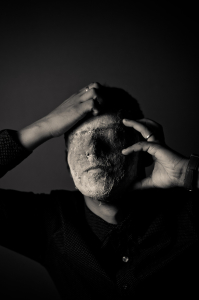When we hear the diagnosis ‘personality disorder’, it conjures up images of aggressive, unstable individuals who are unable to function in society. This cannot be farther from the truth. Individuals with a personality disorder may find it difficult to react to certain situations or behaviours, however they are fully able to function within society and live full and satisfying lives.
 The word ‘personality’ refers to the pattern of thoughts, feelings and behaviour that makes each of us the individuals that we are. Not one person thinks, feels or behaves in the same way as another – similarly personality disorders affect each of us differently. Some individuals find that their disorder is quite mild. These mild disorders can be coped with and are often regarded as personality traits where the symptoms get more difficult in times of crisis or stress.
The word ‘personality’ refers to the pattern of thoughts, feelings and behaviour that makes each of us the individuals that we are. Not one person thinks, feels or behaves in the same way as another – similarly personality disorders affect each of us differently. Some individuals find that their disorder is quite mild. These mild disorders can be coped with and are often regarded as personality traits where the symptoms get more difficult in times of crisis or stress.
However, if you have a personality disorder that is moderate or severe, you may experience difficulties in how you think about yourself and others. Personality disorders are not a sign of a ‘weak’ personality; sometimes we end up thinking that something is broken inside of us, because we are not behaving ‘normally.’ In actual fact, we’re not broken, there’s nothing wrong with us; personality disorders are where our attitudes, beliefs and behaviours can cause us problems in our lives. The causes can be both biological and psychological, we will talk about the causes a little later in the post. At the moment let’s look at the signs of a personality disorder.
What are the signs of a personality disorder?
The signs that you need to look for are, if:
The way you think, feel and behave causes you and people around you significant problems in your daily life. You may feel unable to trust others or you may often feel abandoned – this can cause you to behave in a very defensive way, and be suspicious about everything, ultimately leading to unhappiness and anxiety in yourself and the people around you.
The way you think, feel and behave causes significant problems across different aspects of your life. You may struggle to maintain friendships, to control your feelings and behaviour in personal or professional relationships.
These problems continue for a long time. These difficult patterns may have started when you were a child or teenager and can carry on into your life as an adult.
The diagnosis of a personality disorder is normally given if all of the above signs apply to you.
What different types of personality disorders are there?
Psychiatrists tend to use a system of diagnosis which identifies 10 types of personality disorder. We have given a brief description of the personality disorder and the diagnosable traits found within it; we will dedicate a post to each personality disorder, exploring each one separately. For now let’s look at the overview.
Paranoid personality disorder
This is a persistent distrust of others whose motives are interpreted as malicious.
If you have a paranoid personality disorder, you may:
- Find it hard to confide in people, even your friends.
- Find it very difficult to trust other people – you believe that they will use you or take advantage of you.
- Watch others closely, looking for signs of betrayal or hostility.
- Read threats and danger into everyday situations.
Schizoid personality disorder
This is a general pattern of detachment from all social relationships. People with this personality disorder are said to have restricted range of expressions and emotions, meaning they can’t really interact with people in social settings.
If you have a Schizoid personality disorder, you may:
- Be uninterested in forming close relationships with other people, including your family.
- Feel that relationships are a burden and interfere with your freedom and tend to cause problems.
- Prefer to be alone with your own thoughts.
- Choose to live your life without interference from others – in essence isolating yourself.
- Get little pleasure from life.
- Have little or no interest in sex or intimacy.
- Be emotionally cold towards others.
Schizotypal personality disorder
This is an ongoing pattern of not being able to communicate on a social and interpersonal level, leaving the person extremely uncomfortable with a reduced capacity for close relationships. People with this disorder are known to think and behave eccentrically.
If you have a Schizotypal personality disorder, you may:
- Find making close relationships extremely difficult.
- Think and express yourself in ways that others find ‘odd’, using unusual words or phrases.
- Behave in ways that others find eccentric.
- Believe that you can read minds or that you have special powers such as a ‘sixth sense.’
- Feel anxious and tense with others who do not share these beliefs.
- Feel very anxious and paranoid in social situations.
Antisocial personality disorder (ASPD)
This personality disorder can be described as sociopathic, where the individual has no conscience and no remorse. For this order to be diagnosed the individual will need to be at least 18 years old.
If you have an Anti-Social personality disorder, you may:
- Put yourself in dangerous or risky situations, often without considering the consequences for yourself or for other people.
- Behave dangerously and sometimes illegally.
- Behave in ways that are unpleasant for others.
- Feel very easily bored and act on impulse – you may find it difficult to hold down a job for long.
- Behave aggressively and get into fights easily.
- Do things – even though they may hurt people – to get what you want, putting your needs above theirs.
- Have a criminal record.
- Feel no sense of guilt if you have mistreated others.
- Believe that only the strongest survive, and that you must do whatever it takes to lead a successful life because if you don’t grab opportunities, others will.
- Have had a diagnosis of conduct disorder before the age of 15.
Borderline personality disorder (BPD)
This is when a person suffers consistently from emotional instability, disturbed patterns of thinking, impulsive behaviour, and intense unstable relationships.
If you have a Borderline personality disorder, you may:
- Feel very worried about people abandoning you, and would do anything to stop that happening.
- Have very intense emotions that last from a few hours to a few days and can change quickly (for example, from feeling very happy and confident in the morning to feeling low and sad in the afternoon).
- Not have a strong sense of who you are, and it can change depending on who you’re with.
- Find it very hard to make and keep stable relationships.
- Act impulsively and do things that could harm you (such as binge eating, using drugs or driving dangerously).
- Have suicidal thoughts or self-harming behaviour.
- Feel empty and lonely a lot of the time.
- Get very angry, and struggle to control your anger.
When very stressed, sometimes you might:
- Feel paranoid.
- Have psychotic experiences, such as seeing or hearing things that other people don’t.
- Feel numb or ‘checked out’ and not remember things properly after they’ve happened.
Histrionic personality disorder
This is excessive attention seeking, and reacting in an extremely emotional way to most situations.
If you have a Histrionic personality disorder, you may:
- Feel very uncomfortable if you are not the centre of attention.
- Feel much more at ease as the ‘life and soul of the party’.
- Feel that you have to entertain people.
- Flirt or behave provocatively to ensure that you remain the centre of attention.
- Have a reputation for being dramatic and overemotional.
- Feel dependent on the approval of others.
- Be easily influenced by others.
Narcissistic personality disorder
This is where the person has an inflated sense of their own importance, a deep need for admiration and a lack of empathy for others.
If you have a Narcissistic personality disorder, you may:
- Believe that there are special reasons that make you different, better or more deserving than others.
- Have fragile self-esteem, so that you rely on others to recognise your worth and your needs.
- Feel upset if others ignore you and don’t give you what you feel you deserve.
- Resent other people’s successes.
- Put your own needs above other people’s, and demand they do too.
- Be seen as selfish and ‘above yourself’.
- Take advantage of other people.
Avoidant (or anxious) personality disorder
This is where feelings of inadequacy, sensitivity and social inhibition are prevalent in the individual.
If you have an Avoidant personality disorder, you may:
- Avoid work or social activities that mean you must be with others.
- Expect disapproval and criticism and be very sensitive to it.
- Worry constantly about being ‘found out’ and rejected.
- Worry about being ridiculed or shamed by others.
- Avoid relationships, friendships and intimacy because you fear rejection.
- Feel lonely and isolated, and inferior to others.
- Be reluctant to try new activities in case you embarrass yourself.
Dependent personality disorder
This is where the individual has a long standing need to be taken care of. Fear of abandonment and rejection can lead to ‘clingy’ behaviour.
If you have a Dependent personality disorder, you may:
- Feel needy, weak and unable to make decisions or function properly without help or support.
- Allow others to assume responsibility for many areas of your life.
- Agree to things you feel are wrong or you dislike to avoid being alone or losing someone’s support.
- Be afraid of being left alone to fend for yourself.
- Have low self-confidence and low self-esteem.
- See other people as being much more capable than you are.
- Be seen by others as much too submissive and passive.
Obsessive compulsive personality disorder (OCPD)
This is a preoccupation with orderliness, perfectionism, and mental and interpersonal control at the expense of flexibility, openness and efficiency. OCPD is separate from obsessive compulsive disorder (OCD), which describes a form of behaviour rather than a type of personality.
If you have an Obsessive Compulsive personality disorder, you may:
- Need to keep everything in order and under control.
- Set unrealistically high standards for yourself and others.
- Think yours is the best way of making things happen.
- Worry when you or others might make mistakes.
- Expect catastrophes if things aren’t perfect.
- Be reluctant to spend money on yourself or others.
- Have a tendency to hang onto items with no obvious value.
What causes personality disorder?
 There seems to be no clear reason why some people develop a personality disorder and others don’t. Some factors that can play a significant part in the development of personality disorders can be; the environment we grow up in, our early childhood and teenage experiences and some researchers say, genetic factors.
There seems to be no clear reason why some people develop a personality disorder and others don’t. Some factors that can play a significant part in the development of personality disorders can be; the environment we grow up in, our early childhood and teenage experiences and some researchers say, genetic factors.
Our home environment and our early experiences
Our home environment is essential to our development, it sets the scene of how we respond to the people around us and the behaviours we learn from them. You may be more likely to develop a personality disorder if you’ve experienced:
- An unstable or chaotic family life, such as living with a parent who is an alcoholic, or one who struggles to manage a mental health problem.
- Growing up in an abusive environment, or if you have experienced neglect, physical, emotional or sexual abuse yourself.
- Little or no support from your caregiver – this may be especially hard if you experienced a traumatic event, accident or a major incident.
- A lack of support or bad experiences during your school life, in your peer group or wider community, such as bullying, verbal abuse or even isolation.
- Losing a parent through separation or bereavement.
When we have a difficult childhood, sometimes we develop certain beliefs about how people think and act, and even how relationships work. We then go onto develop coping strategies that seem to work when we’re children, but aren’t as helpful as we grow up. Not everyone who experiences a traumatic event or even abuse will develop a personality disorder, the care and support you were given to help you cope at the time would have made a large difference. Similarly, not everyone who develops a personality disorder will have had a traumatic experience.
Genetic factors
Researchers state that some elements of our personalities are inherited. We are born with different temperaments – for example, babies vary in how active they are, their attention span and how they adapt to change, even how quickly they develop. Some experts believe that our resilience, and our predisposition for depressions and even the development of a personality disorder can be inherited.
Personality Disorders can only be diagnosed by a mental health professional such as a psychiatrist – not your GP. If you think you have a personality disorder, speak to your GP and they can refer you to your local community mental health team who will be able to assess you.
If you want to talk to someone regarding the issues raised in this blog, please contact us. We are offering a free one week trial for online counselling.

